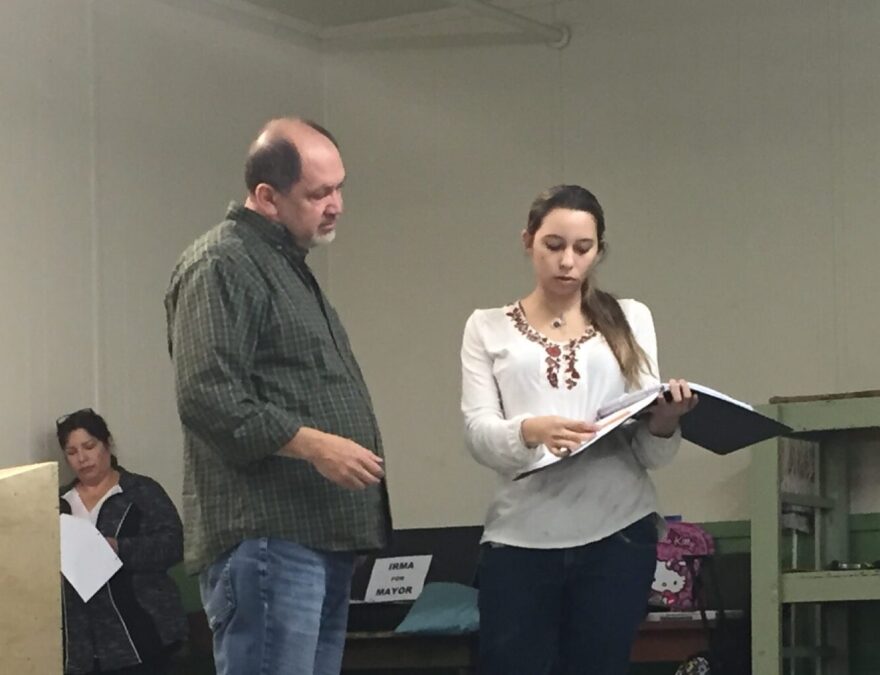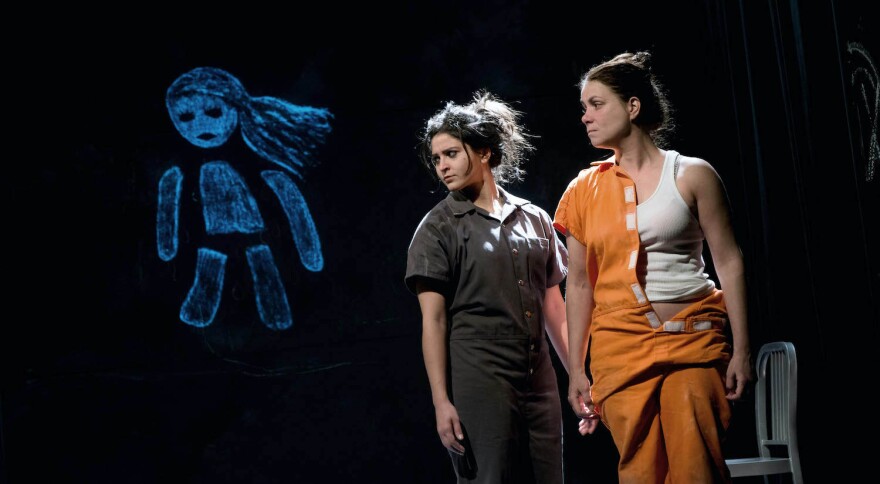Racism, erasure, lack of diversity — these are not new issues to American Theater. But 2020, with the murder of George Floyd and the Black Lives Matter movement, brought a new urgency to the call for change and the demand for more diversity.
In June of 2020, there was an alliance of arts workers, all people of color, who issued a letter entitled Dear White American Theater that launched new demands and challenges for greater change. More than 100 of the nation’s largest theaters — including Diversionary Theatre, The Old Globe Theatre, La Jolla Playhouse and San Diego Repertory Theatre — responded to We See You White American Theater with new anti-racist policies and plans.
And then last summer, San Diego Repertory was accused of racism and misogyny by cast and crew members of "The Great Khan." But the Rep ceased operations last year due to financial issues and its co-founder, Sam Woodhouse announced his retirement.
Theater director Daniel Jaquez, who identifies himself as a white Mexican, wanted to point out that it took an out of town company of actors to raise these accusations.
"It was a company that weren't fearful of not being hired, a company that was trained and has used their voice to stand up for this kind of abuse," Jaquez said. "There have been a lot of issues with San Diego Rep for a while, but people just said, 'Oh, this is how we are, this is what's been happening.' And we weren't able to stand up to represent ourselves in this environment until somebody from out of town that had nothing really to lose say, 'Enough.'"

Theater director and UC San Diego associate professor Lamar Perry did not want to comment directly on what happened at the Rep but acknowledges that on "a local level, that event spurred conversation further, I will say on a systemic level, looking at the larger theaters in town, La Jolla Playhouse and the Old Globe, there were already substantive conversations happening based on the 'racial reckoning' that happened in 2020, which I air quote that because as a queer Black person, racial reckoning is something that we're born into. It's not something that suddenly happened but it is a specific historical point of consciousness that happened in the American theater. So I feel like those conversations were already well underway prior to that event happening. I do think, however, that specific event did galvanize the San Diego theatrical community around being more specific in developing language of accountability and how to have public conversations about harm atonement and restitution as folks were looking to maneuver through whatever was happening over there. And I think that moments like that, that teach people the language and the activity of empowerment, of naming abuse, and of naming systems to be able to engage in conversations, is never actually a bad thing."

One of the issues in regards to what happened at the Rep is that on a certain level, they were doing a lot publicly to champion diversity. The Rep created the Black Voices Play Reading Series and Latinx Play Festival, putting on plays by and about people of color.
"You could say in many ways (The Rep) wrote the rubric on the boxes that needed to be checked to understand how to implement and celebrate diversity in San Diego," said San Diego artist William "BJ" Robinson. "Now that rubric was written a long time ago and did not necessarily receive the updates that it might have needed along the way to a point where the Rep did look to be an organization that was really reaching out to the communities, that was really celebrating different artists and bringing different stories and different focuses with festivals into their productions. And at the same time, they clearly were continuing in practices that were harmful to many artists. And so I think what was missing was the collective awareness on are we actually meeting people where they are? Are we actually caring and understanding for the artists that we're bringing in, or are we assuming a position of knowing better?"
Robinson also hosts "Tough Talk" and "KPBS/Arts."
Perry sees change happening pointed to a way he measures progress.
"So when I see trans and non-binary folks of color occupying space, that traditionally means that other people who are not as marginalized as those folks also have access to that space," Perry said. "So I think that's what the measurement looks like for me. That those who have traditionally been marginalized and shut out and the most vulnerable occupy space in leadership, in production, and also that everyone does. I'm not advocating for a singular group. I'm advocating for liberation for all."

And audiences have a part to play in making change happen.
"It's kind of like politics, right?" Jaquez suggested. "They want you to be a very engaged citizen and tell your voice, this is exactly what we need just to be engaged. Give your dollars where they're needed."
It is also the audience's responsibility to speak up if they feel underrepresented or if representations they see ring false. And to let companies know when they get something right.
But Jaquez, Perry and Robinson all see capitalism as at least part of the problem. Theater is expensive to put on and if box office success is the focus, companies may not gamble on new playwrights, new works or challenging subjects.
"Everything falls under the lens of capitalism because the American system of theater is not subsidized by the government," Perry said. "You get into these systems where regional theaters are at the taste of their audiences, of their donors, of the various folks who provide philanthropic support and that is a model that was birthed out of the reduction in funds from the NEA and a litany of other cuts in federal funding and government funding for the arts. So what we're actually talking about on a systemic level, when we're talking about support and radical transformation in the American theater is not just transformation on a granular level, institution by institution, but also a reimagination in our governmental budgetary structure of how we support the arts."
Such support could also help smaller theater companies to put on works and to widen the opportunities for new and different voices.
Jaquez listed companies such as the Black Theater Alliance, Common Ground Theatre, TuYo Theatre, Teatro Mascara Majica, Bocon Arts, and Teatro San Diego.
These two Midday Edition segments just begin to scratch the surface of the issues so we hope to continue the discussion and continue to check back in to assess change.
-
Since 2020 there has been a renewed urgency to bring diversity to theaters and create systemic change. But how do we measure progress?












